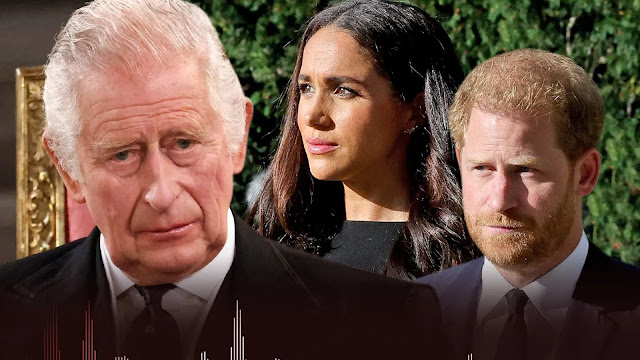King Charles, known for his measured approach, immediately addressed the allegations through carefully crafted public statements. These statements emphasized the monarchy's commitment to duty, service, and unity. By addressing the nation directly, King Charles sought to reassure the public and reaffirm the royal family's dedication to their roles.
King Charles rallied support from senior royal family members, including Prince William and Princess Anne. Their unified front in public appearances and interviews underscored a collective commitment to the monarchy's values and responsibilities. This show of solidarity was crucial in countering the divisive narrative presented by Meghan Markle.
King Charles leveraged his media relationships to control the narrative. By granting exclusive interviews to trusted journalists and media outlets, he ensured that the monarchy's perspective was accurately and respectfully represented. This strategic engagement helped mitigate negative press and refocused public attention on the royal family's positive contributions.
To counter the negative press, King Charles amplified the royal family's philanthropic efforts. Initiatives such as The Prince's Trust and The Royal Foundation were showcased, highlighting their impact on society. By drawing attention to these positive endeavors, King Charles aimed to shift the public discourse towards the monarchy's beneficial role.
King Charles sought legal counsel to address defamatory statements and protect the royal family's reputation. Legal actions, where necessary, were pursued to challenge false narratives and ensure accountability. This legal strategy was part of a broader effort to uphold the monarchy's dignity and credibility.
In response to criticisms, King Charles initiated internal reviews and reforms within the royal household. These measures aimed to modernize the institution, address grievances, and ensure greater transparency and inclusivity. By demonstrating a willingness to evolve, King Charles reinforced the monarchy's relevance in contemporary society.
King Charles increased his public engagements, visiting various communities and participating in national events. These appearances were designed to strengthen the bond between the monarchy and the public. By being visible and approachable, King Charles reinforced the monarchy's commitment to serving the nation.
Recognizing the importance of digital communication, King Charles expanded the monarchy's online presence. Through social media platforms and a revamped royal website, he engaged with a younger audience and provided timely updates on royal activities. This digital strategy helped foster a more inclusive and connected royal family.
King Charles acknowledged the need for greater diversity and inclusion within the royal household. Initiatives were launched to promote cultural sensitivity and inclusivity, reflecting the diverse fabric of British society. These efforts aimed to address criticisms and demonstrate the monarchy's commitment to social progress.
Responding to Meghan Markle's allegations about mental health struggles, King Charles prioritized mental health advocacy. The royal family championed mental health awareness campaigns, collaborating with organizations to destigmatize mental health issues. This focus on mental health highlighted the monarchy's empathetic and supportive stance.




